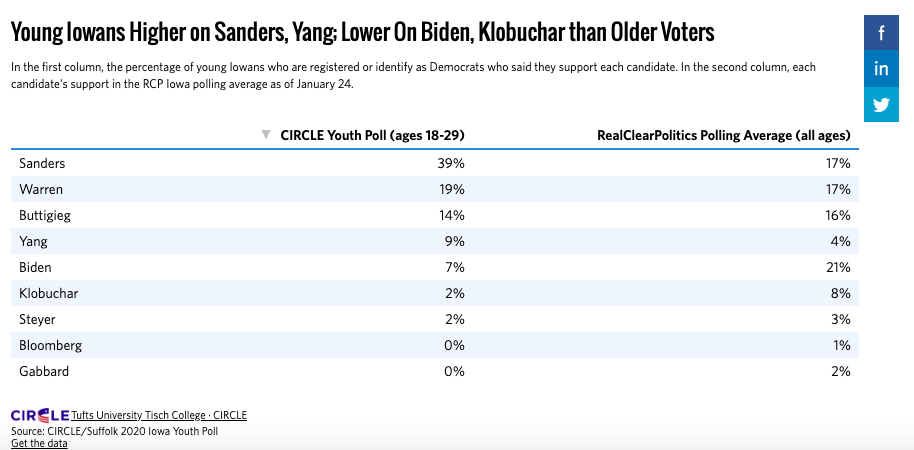I find myself less anxious than most friends and commentators. Here are my largely sanguine responses to several current concerns about the impeachment process:
It’s a mistake to focus on one specific scandal. Congress should persuade the American people to condemn a whole pattern of corruption in the administration. (See David Atkins, for example).
Congress can focus on one or two articles of impeachment in order to handle those charges well. (The best current guess is that the articles will involve: 1. Trump’s interaction with Ukraine, and 2. the administration’s obstruction of Congress across many issues.) Meanwhile, the press, presidential candidates, pundits, social movements, and regular citizens will inevitably conduct a wider inquiry and debate. I don’t think the big picture will be lost just because the articles in Congress are precise and narrow.
The Ukraine story also implicates Hunter Biden, and hence (in some way) Joe Biden. That either means that it’s a poor choice of a scandal for the Democrats to use in an election year, or that it’s bad for the public, because both parties will end up defending crony capitalism.
Joe Biden has an opportunity to make a case that he is truly blameless in the Ukraine matter. If he is persuasive, fine. If he fails to persuade, then it’s better that he should fail now, rather than during the general election. Meanwhile, Elizabeth Warren has every incentive to broaden the issue to encompass crony capitalism writ large. Her voice (and others’, too) will ensure that the whole Democratic Party is not soft on corruption.
Impeachment will drown out the Democratic primary campaign, overwhelming an important debate about our future.
During the primary season, a party wants its own faithful to pay attention to the rival proposals, critiques, counter-arguments, endorsements, gaffes, etc. It’s generally fine if other voters pay little attention until a nominee emerges to address the whole public. With vast attendance at primary campaign events and a lively debate online, there is little chance that core Democratic voters will tune out the primary. The intended audience is paying attention.
The impeachment debate will arbitrarily affect the outcome of the Democratic primary.
If it takes Joe Biden down, he was doomed anyway. If he turns it to his advantage, it will reinforce his best argument: his electability. If Warren benefits because she makes the sharpest critique of corruption–well, she is raising a real issue. And if someone else (say, Kamala Harris during a Senate trial) uses the impeachment effectively, it’s evidence of that candidate’s skill.
The Speaker seems to want a short, narrow impeachment process. That will not persuade the American people of the deeper problems with Trump. Pelosi is resigned to an unpopular process and doesn’t understand that impeachment hearings could change Americans’ opinions.
Don’t take what Speaker Pelosi says precisely at face value. I’m not saying that she’s lying; she would genuinely prefer a shorter and tighter process. But she knows that impeachment is likely to extend and expand. She wants unconvinced voters to believe that Democrats are trying to make this quick so that they can move onto other matters. She is also putting mild pressure on her caucus to move things along. I would be very surprised if things actually do wrap up by Thanksgiving, or if she believes that they will.
(By the way, I am continually surprised by strong partisans’ assumption that when someone on their side says something conciliatory about the other side, that person really means it. Do you really think Nancy Pelosi’s main reaction to this situation is to be “heartbroken and prayerful,” as she told ABC News? Are you sure Joe Biden actually believes the Senate Republicans are reasonable? It is not only the other side that sometimes doesn’t say exactly what they think.)
The Senate will acquit, Trump will survive, and as a result, not only will impeachment be further weakened as a tool for accountability, but Trump’s electoral prospects will improve.
Yes, the Senate is overwhelmingly likely to acquit, and Trump will still hold office on Election Day in 2020. But the American people should by then have a clear account of his criminality, which should weigh, at least mildly, against his reelection prospects. That is a sanction. Subsequently, he may face a federal jury on related charges.
If anything, I would have some qualms about actually removing him less than a year before the election. Who would the GOP nominate? What kind of mandate would a Democratic president hold? My ideal outcome might be for the House to impeach, a majority of US Senators to vote to remove Trump, for him to hang on because fewer than 67 Senators voted against him, and for the American people to finish the job in November.
Impeachment creates (at best) a tough vote for Democrats in districts that voted for Trump. Why “punish” the president by giving his party a boost in the congressional election?
This matter has received vast amounts of attention. My tentative takeaway is that any electoral impact will be small and may be a wash–a few Democrats losing in conservative districts and states (like Alabama), but a few Republican Senators facing very tough votes as a result of impeachment. There is a long tail of possible outcomes in either direction, but the best bet is a limited effect.
It’s a mistake to give many House committees a role in impeachment. One committee should handle it.
Pelosi is trying to build support by giving several leaders and groupings within her caucus a stake. Also, one of the articles is likely to be obstruction, and the Administration has obstructed several committees.
The Democrats grandstand amateurishly in hearings. They don’t know how to cross-examine and build a case.
True. And there’s a reason for it: individual politicians want to talk on camera, even though the inquiry would be much better handled by professional counsel. This problem is worth worrying about, but surely the Democrats will finally get it together now ….?


